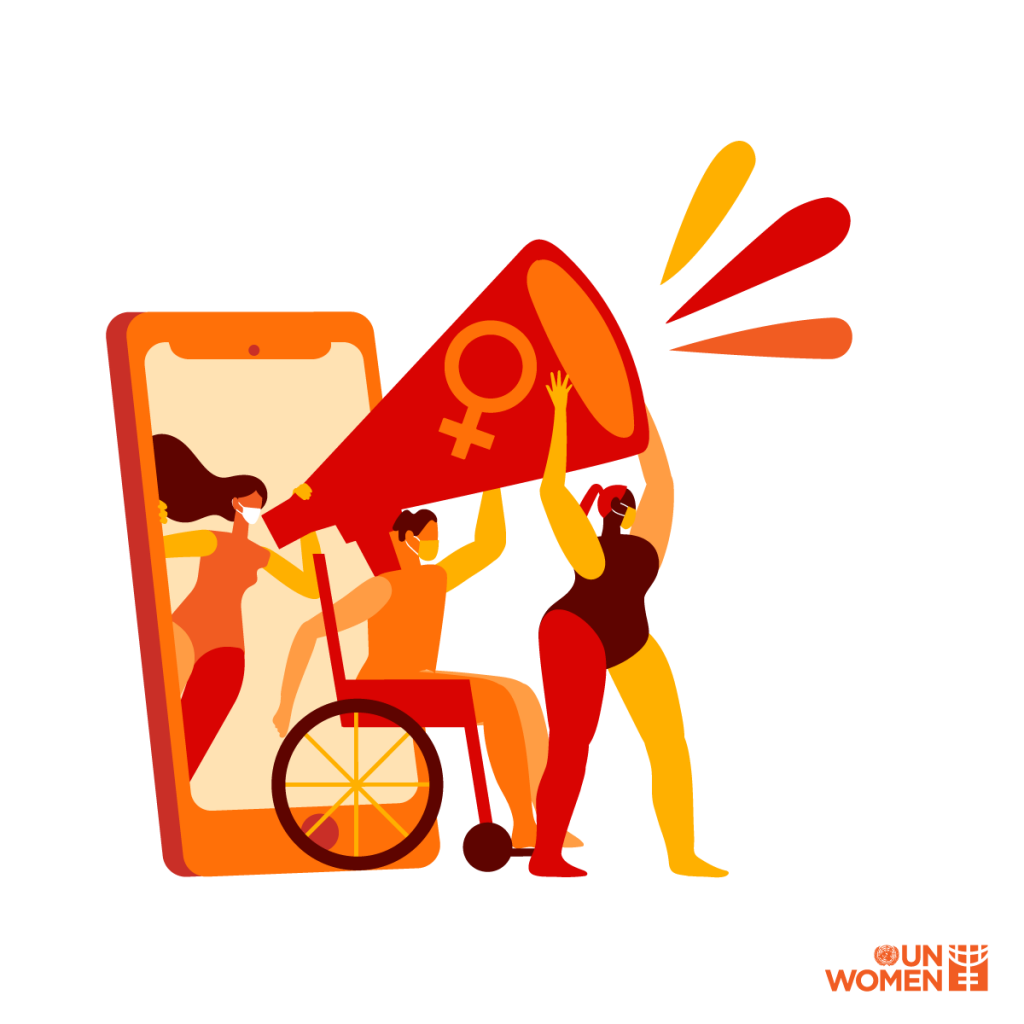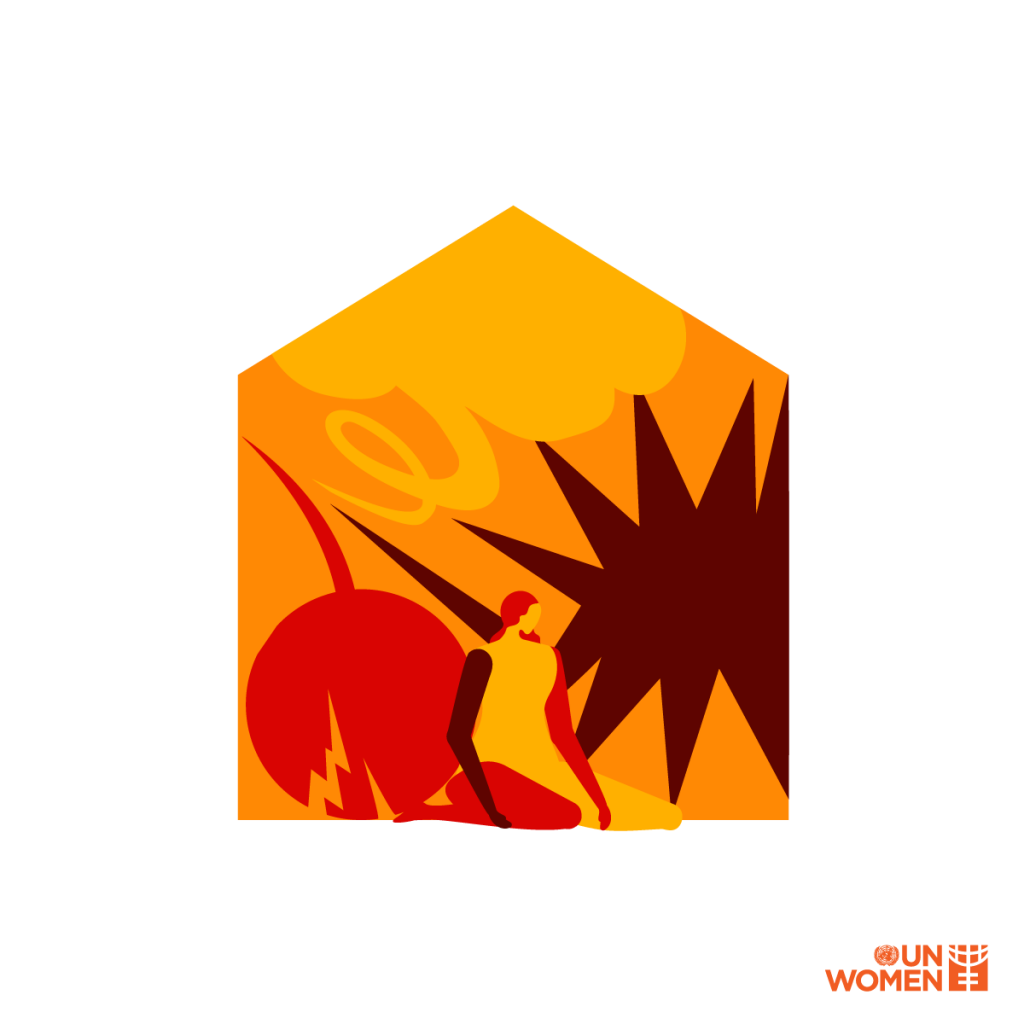
A report by the World Health Organisation (WHO) focused on the largest study of the prevalence of violence against women. The report was on behalf of a special working group of the United Nations, and it revealed that across their lifetime, one in three women are subjected to physical or sexual violence by an intimate partner or sexual violence from a non-partner. Given the high levels of stigma and under-reporting of sexual abuse, the true figure may be significantly higher.
If you are a parent with three daughters, have you ever considered the possibility that one of your beautiful daughters may have experienced some form of sexual violence sometime before her mid-twenties? It is a heart-breaking thought but one that must be considered as violence against women has become a major public health crisis.
In 2020, a social media post asked the hypothetical question,
“What would you do if the world had no men for 24 hours” went viral. Some of the responses were:
“Wear whatever I want and feel safe while doing it.”
“Go on a walk alone at night.”
“Be confident on social media.”
“Feel Safe.”
According to Dr Tedros Adhanom Ghebreyesus, WHO Director-General, violence against women is endemic in every culture and has been worsened by the COVID-19 pandemic. “But unlike COVID-19, violence against women cannot be stopped with a vaccine. We can only fight it with deep-rooted and sustained efforts — by governments, communities and individuals — to change harmful attitudes, improve access to opportunities and services for women and girls, and foster healthy and mutually respectful relationships,” he said.
Sexual and Gender-Based Violence in Nigeria.
Nigeria is suffering from a sexual and gender-based violence (SGBV) crisis. The Nigeria Demographic and Health Survey (NDHS) 2018 revealed that 30% of girls and women aged between 15 and 49 years have experienced sexual abuse. The instability in the Northeast and the COVID-19 pandemic have exacerbated the situation and served to highlight the depth of the problem. In June 2020, following increasing reports of sexual violence against women, President Buhari and the Nigerian Governors Forum declared a state of emergency on SGBV in the country.
Twenty states including the Federal Capital Territory have adopted the Violence Against Persons Prohibition (VAPP) Act of 2015 in an effort to provide more protection under the law for women. Thus far, 6 states are awaiting Executive assent. Though Federal and State Ministries of Women Affairs, the National Agency for the Prohibition of Trafficking in Persons (NAPTIP) and civil society and humanitarian organisations have made efforts to address the crisis, it remains a deep-rooted challenge.
Nigeria has 31 Sexual Assault Referral Centres (SARC) responsible for providing free medical assistance, forensic medical examination counselling and justice support services to survivors of sexual violence across 17 states. However, they are unable to function optimally due to a lack of funding from the Federal and State governments.
16 Days of Activism against GBV
The 16 Days of Activism against Gender-Based Violence (GBV) is a 30-year-old annual international campaign that kicks off on the 25th of November, the International Day for the Elimination of Violence against Women, and runs until the 10th of December, Human Rights Day. It was launched by the Centre for Women’s Global Leadership, at the inaugural Women’s Global Leadership Institute in 1991 and is possibly the most widely recognised and longest-running campaign for women’s rights in the world. The dates for the campaign were chosen to link violence against women and human rights to highlight the fact that gender-based violence against women is a violation of human rights.
Responding to SGBV in Nigeria
The United Nations Population Fund (UNFPA) has been in Nigeria for several years working closely with the Nigerian Government through the Ministry of Women Affairs to ensure that women and adolescent girls across the country receive quality health care. To renew UNFPA’s support and commitment for the sexual and reproductive health and rights of women, girls, and young people in Nigeria, the United Nations Under-Secretary-General and Executive Director of UNFPA, Dr. Natalia Kanem, was on an official visit to Nigeria from 24 to 28 November 2021. Her visit coincided with the start of this year’s 16 Days of Activism campaign.
At a press conference on Sunday, November 28, 2021, Dr. Kanem discussed the UNFPA’s work in Nigeria which is focused on ‘three zeroes’: to have zero unmet need for contraception; zero preventable maternal deaths; and zero gender-based violence and harmful practices. She added that “UNFPA intends to assist Nigeria to get to zero gender-based violence. Gender-Based Violence is a tragic circumstance and a crime that sadly will affect one in three women and Nigerian girls through their lifetime”.
Dr Kanem urged men to commit to interrupting any situations that endanger women or young girls. She said, “I appeal to fathers to ensure that girls know their rights, that their dignity is upheld, and I appeal to women themselves across this nation to join hands in solidarity and from the cradle teach our children that everyone is equal and that girls are to be respected and loved as the precious human beings that they are”.
The Spotlight Initiative is another notable global effort to eliminate violence against women and girls. It is a multi-year partnership between the European Union and the United Nations and the largest targeted effort to end all forms of violence against women and girls by 2030. The Initiative represents an unprecedented global effort to invest in gender equality as a precondition and driver for the achievement of the Sustainable Development Goals. The Spotlight Initiative also responds to all forms of violence against women and girls, with a focus on domestic and family violence, sexual and gender-based violence and harmful practices, early child marriage, trafficking in human beings and sexual and economic (labour) exploitation. In Nigeria, the Spotlight Initiative is implemented in six states: Adamawa, Cross River, Ebonyi, Lagos, Sokoto and the FCT.
Sexual and Gender-Based Violence has significant social and economic repercussions, not just for the victim, but also for communities and the country at large. Nigeria must join other countries to honour their commitments to increased and strong political will and leadership to tackle violence against women and girls in all its forms. This can be achieved through creating transformative gender policies that build a society devoid of any form of discrimination, encourage SGBV victims to report cases because they are sure of receiving a fair hearing and promise a country where women are assured of their safety within and outside their homes.

